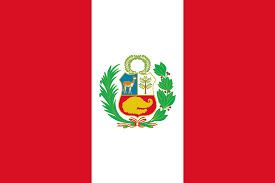What is a Schengen Visa?
The Schengen Visa is issued in the form of a sticker placed on a passport, travel document or other valid document entitling its holder to cross the border. Possession of a Schengen Visa does not confer an automatic right of entry. Entry will only be granted if the other conditions set out in the Schengen Convention are met, i.e. justification of the purpose and conditions of the trip and possession of sufficient funds.
Short-stay Schengen visa
The Short-Stay Visa is the most common Schengen Visa. It entitles travellers, subject to the visa requirement, to enter the territory of the 26 Schengen States for one continuous visit or several visits, the duration of which does not exceed three months (90 days) in any half of the year from the date of first entry into the Schengen area. The Short-Stay Visa is issued for one or several entries and its period of validity will not exceed five years.
If you plan to go to Spain on a short-stay visa for a period of no more than 90 days and your country is not on the visa waiver list, you need to apply for a Schengen Visa (Visa C). This visa is not a work permit.
Please note that in order to apply for a visa at the Spanish Consulate, your sole or main destination (the largest number of nights) must be Spain. In the absence of a main destination (for example, if the length of stay is the same in two or more countries) you may apply in any of these countries, but it is recommended that you apply in the country of first entry because your passport will show the entry stamp of your first destination.
Spain's main language is Spanish, please note that the Consulate General of Spain will only accept documentation in that language, so if you are applying for a Visa to any of the countries represented, please make sure to send all you documents in Spanish.
When to apply?
You may apply for a Visa up to 180 days in advance of your intended flight date to the Schengen area. Applicants are advised not to confirm their travel arrangements until they have received the Visa.
Schengen Information
The Schengen Visa must be obtained at the Consulate of the country that will be the main country of your trip. Therefore, please check your travel plans before applying to the Spanish Consulate in Lima, Peru. In case of traveling to several Schengen countries, please apply to the Consulate of the country where you will stay the maximum number of days, or to the Consulate of the country through which you enter the Schengen countries, if the duration of stay is the same in more than one Schengen country.
| The Schengen Visa is valid for
|
| Austria |
Belgium |
Denmark |
| Finland |
France |
Germany |
| Greece |
Iceland |
Italy |
| Luxembourg |
Netherlands |
Norway |
| Portugal |
Spain |
Sweden |
| Estonia |
Latvia |
Lithuania |
| Poland |
Czech Republic |
Slovakia |
| Hungary |
Slovenia |
Malta |
| Swiss |
Liechtenstein |
|
National Visas
General information
Third-country nationals need a national visa when they are staying in Spain for more than 90 days (in any 180-day period) in order to work, study or establish residence. They also need a national visa when they are traveling to work for a period of less than 90 days.
Citizens of the European Union, the European Economic Area and Switzerland do not need a visa to establish residence in Spain or to undertake long-term studies or to work, but once in Spain, they must register in the Register of Union Citizens. Family members who accompany them and who are beneficiaries of the right of free movement must apply for a residence permit in Spain. If they need a visa to stay based on their nationality, they must obtain a visa for a family member of a Union citizen (see section “Visas for family members of Union citizens”).
The national visa allows you to travel to Spain and transit or circulate through the territory of any of the Schengen States for a maximum of 90 days, but does not entail an automatic right of entry into the Schengen area. Border authorities may refuse entry if all legal requirements for entry are not met (see section “Conditions for entry into Spain”).
Data Protection
The processing of personal data of visa applicants is carried out in accordance with the General Data Protection Regulation
Persons wishing to exercise their rights of access, correction and deletion of their personal data in the Visa Information System (VIS) should contact:
- Ministry of Foreign Affairs, European Union and Cooperation
- General Inspection of Services
- Postal address: Plaza de la Provincia, 1, Madrid, Spain
- E-mail: dpd@maec.es
For this purpose, the following forms can be used:
- Right of access
- Right of rectification
- Right to erasure
Persons whose visa application has been refused due to a ban on entry into the Schengen area may exercise their rights to access, correct and delete their personal data in the Schengen Information System (SIS) by contacting the Ministry of the Interior.
For more information about your rights and duties and how to exercise the rights of access, correction and deletion of data included in the SIS, you can consult the website of the Spanish Data Protection Agency







